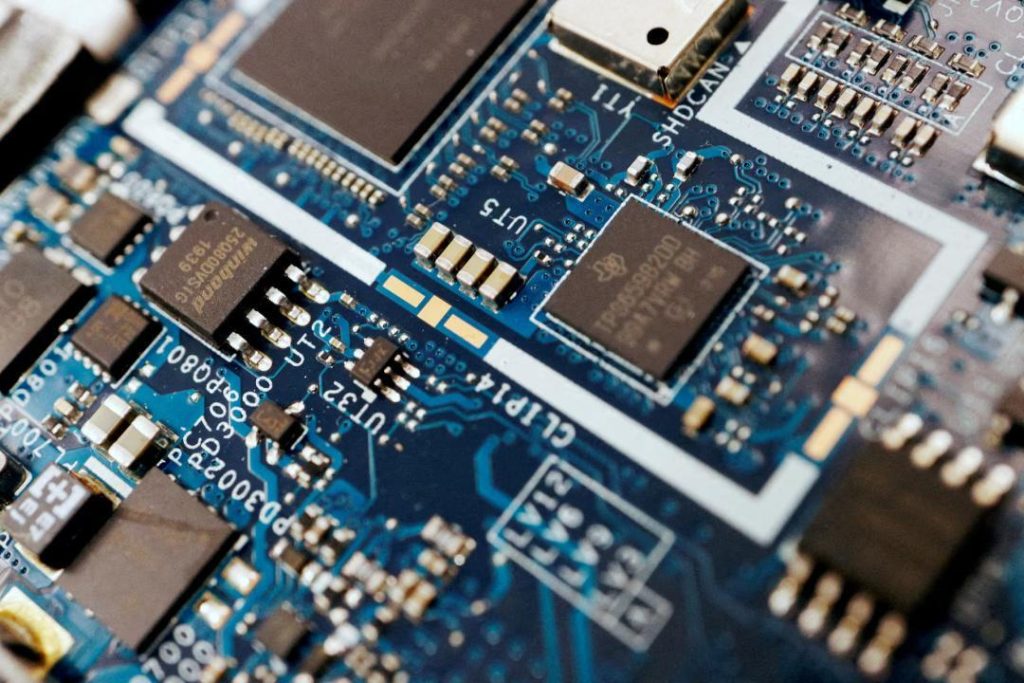
US May Revoke Chip Tech Access for Samsung, TSMC in China: Report
The US Department of Commerce is considering revoking authorizations granted to global chipmakers Samsung, SK Hynix, and TSMC operations in China, according to a recent report by Reuters. This move would significantly impact these companies’ ability to receive US goods and technology at their plants in China, which could have far-reaching consequences for the global chip industry.
The report, which cited an unnamed official, suggests that the US is “just laying the groundwork” in case the truce reached with China falls apart. This implies that the US is preparing for a potential escalation of tensions with China, which could lead to further restrictions on US technology exports to the country.
Samsung, SK Hynix, and TSMC are all major players in the global chip industry, and their operations in China are a significant source of revenue for these companies. The US has previously granted these companies licenses to receive US goods and technology at their Chinese plants, but if the Commerce Department revokes these authorizations, it could have severe consequences for these companies’ ability to operate in China.
The decision to revoke the authorizations is reportedly being made in response to concerns about China’s treatment of US companies and the risk that US technology could be used for military purposes. The US has long been concerned about the potential for Chinese companies to use US technology to boost their own military capabilities, and the Commerce Department has taken steps in the past to restrict US technology exports to China in an effort to mitigate this risk.
The US has also been critical of China’s treatment of US companies, including the arrest of two Canadian citizens on national security charges and the forced transfer of technology to Chinese companies. In response to these concerns, the US has imposed tariffs on hundreds of billions of dollars’ worth of Chinese goods and has restricted the ability of Chinese companies to buy US technology.
The potential revocation of the authorizations granted to Samsung, SK Hynix, and TSMC is just the latest development in the ongoing trade tensions between the US and China. The two countries have been engaged in a trade war for several years, with the US imposing tariffs on Chinese goods and China retaliating with tariffs on US goods.
The trade war has had significant consequences for the global economy, including a decline in global trade and a rise in inflation. It has also had a significant impact on the technology industry, with many companies struggling to navigate the complex web of tariffs and restrictions imposed by the US and China.
The potential revocation of the authorizations granted to Samsung, SK Hynix, and TSMC could have significant consequences for the global chip industry. These companies are major suppliers of chips to many of the world’s leading technology companies, including Apple, Google, and Amazon. If these companies are unable to receive US goods and technology at their Chinese plants, it could lead to a shortage of chips and potentially disrupt the entire supply chain.
The decision to revoke the authorizations is also likely to have significant consequences for the US-China relationship. The US has long been critical of China’s treatment of US companies, and the potential revocation of the authorizations could be seen as a major escalation of tensions between the two countries.
In conclusion, the US Department of Commerce is considering revoking authorizations granted to Samsung, SK Hynix, and TSMC operations in China, according to a recent report by Reuters. This move could have significant consequences for the global chip industry and the US-China relationship. The decision is reportedly being made in response to concerns about China’s treatment of US companies and the risk that US technology could be used for military purposes. The potential revocation of the authorizations is just the latest development in the ongoing trade tensions between the US and China, and it remains to be seen how this situation will unfold in the coming months.






